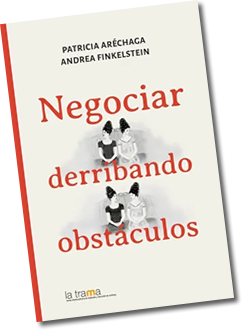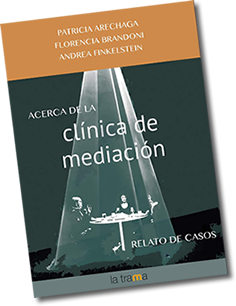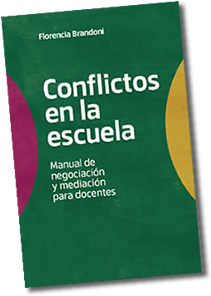-
El registro es gratuito. Luego de completarlo recibirá claves en su casilla de E-mail, para descargar los artículos y recibir novedades.
- Más información

- Descarga Gratuita

- Descarga Gratuita

Número 8 / Diciembre 2003
El proceso de Mediación II

Joss Brian Opie
La “calidad”: estándares, conflictos y preguntas
El origen de este artículo se encuentra en un estudio cualitativo realizado para el IPRECON. IPRECON tenía una fuerte inquietud sobre la entonces creciente pérdida de prestigio de la conciliación como una alternativa viable al congestionado sistema judicial. Por lo tanto, resolvió realizar un estudio cualitativo concerniente al concepto de “calidad” en MARC, con la esperanza de que el estudio no sólo le ayudaría a IPRECON en la evaluación de la calidad su servicio, sino que también fomentaría un nuevo debate y discusión sobre la conciliación entre los otros operadores y servicios conciliatorios, y tal vez nuevas revelaciones sobre la dirección que debería tomar la conciliación en el futuro.
Se consideró que los resultados obtenidos del estudio cualitativo tendría más valor para IPRECON que para otros proveedores de servicios MARC, pero la investigación sobre lo que significa “calidad” en la conciliación peruana y los MARC en general y la metodología del estudio puede resultar interesante para otros profesionales en el campo. Por lo tanto, este artículo resume la discusión que se hizo en el estudio cualitativo sobre el concepto de "calidad". Argumenta que no hay una definición única de "calidad" y que cualquier definición es producto de la politica de la institución que lo crea. Concluye que aun así es necesario continuar a reflexionar sobre lo que se identifica como calidad, y crear estándares de calidad, para poder evaluar servicios MARC y identificar metas para los servicios. Eso es de importancia fundamental para asegurar regularidad entre proveedores de MARC y la reputación de las instituciones MARC como alternativos creíbles.
The research that this article is based on is sourced from a qualitative research project undertaken for IPRECON. IPRECON was becoming increasingly concerned about what it perceived as a growing loss of the standing of extrajudicial conciliation as a viable alternative to the congested formal judicial system in Peru. Therefore, IPRECON decided to undertake a research project concerning quality in ADR in the hope that such a project would not only assist it in evaluating the quality of its conciliation service, but also that the project would incite new debate and discussion amongst conciliation service providers, and potentially new ideas about how conciliation should develop as an institution in Peruvian society.
While the results of the project are of greater value for IPRECON than for other ADR service providers, it was considered that the research about the meaning of "quality", both in Peruvian extrajudicial conciliation and ADR in general, and the methodology used in the project could be useful in the wider context. This article summarises the main arguments developed in the project concerning the concept of "quality" in ADR. It argues that there is no universal definition of quality, and that definitions of quality are politically determined. It concludes, however, that while there is no such universal definition, it is necessary to continue to reflect upon and identify quality standards to be able to evaluate ADR services and to identify goals for such services. This is of fundamental importance in ensuring consistency between ADR providers and the maintainence of ADR institutions as credible alternatives.
 Descarga de documento
Descarga de documento
Joss Opie es abogado neozelandés y es licenciado en Filosofía y Letras y Derecho. Estudió en la Victoria University de Wellington. Después de graduarse, resolvió desarrollar su interés en medios alternativos para la resolución de conflictos (MARC) y derechos humanos trabajando como voluntario en organizaciones vinculadas con esos temas en el Perú y el Brasil. Su trabajo en un centro de conciliación peruana, el IPRECON, produjo este artículo. Actualmente, trabaja en un escritorio de abogados que se llama Buddle Findlay. Se puede escribirle a: joss.opie@buddlefindlay.com (castellano, portugués, inglés) Joss Opie is a lawyer from New Zealand. After graduating with a BA/LLB from Victoria University of Wellington, he decided to develop his interest in Alternative Conflict Resolution (ADR) and human rights by volunteering in Peru and Brazil for organisations working in those fields. Undertaking this work was assisted by his fluency in Spanish and Portuguese. The project that he carried out in IPRECON, a Peruvian conciliation centre, led to this article. Currently, he works for Buddle Findlay and is contactable on: joss.opie@buddlefindlay.com ATENCION: Si tiene problemas para descargar el archivo, haga
click con el boton derecho de su mouse sobre el link de arriba y elija la opción "Guardar destino como..."
![]() FORMATO PDF:
FORMATO PDF:
Para ver los documentos completos es necesario el programa Acrobat Reader. Si no lo tiene puede descargarlo desde el sitio de Adobe de manera gratuita.

